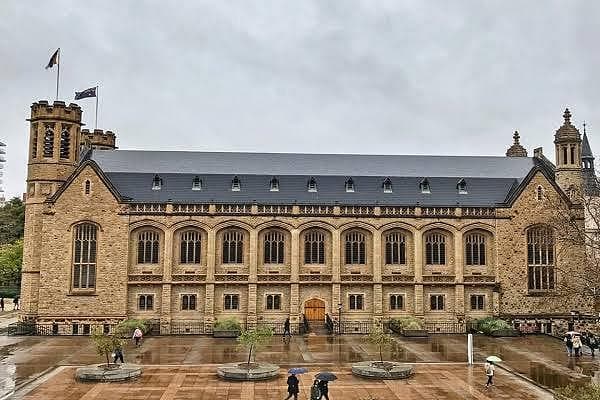The Master of Arts uses a variety of teaching approaches, from face-to-face lectures, seminars and workshops to blended learning. Small group learning and regular close contact with research active academics are embedded across the program.
Students complete 12 units worth of core courses in their chosen discipline, and a capstone thesis also worth 12 units, which allows students to pursue their interests in greater depth.
Unique to this degree is a 6 unit internship that provides students with the opportunity to gain hands-on experience in an organisation related to their career aspirations. Students take elective courses from outside of their discipline area to develop cross-disciplinary thinking and the ability to apply it to solve complex problems.
Areas of Specialisation
Creative Practice in Music (SATAC code 3CM210)
The Creative Practice in Music specialisation in the Master of Arts will equip students with practical, theoretical and conceptual tools to enter the world of music in the 21st century as a creative artist. This program focuses on the use of digital technology across the fields of sonic art, sound design and composition, including the application to contemporary media such as film and games. Students are encouraged to explore a variety of different approaches, both individual and collaborative, and styles from popular to experimental, in compiling a professional portfolio of creative work.
Graduates from the Creative Practice in Music stream have various performance opportunities in public and private practice, and often undertake teaching in the private studio.
When applying for this specialisation, you will need to show evidence of having a Bachelor degree or equivalent with a substantial Music component OR a Bachelor degree or equivalent plus demonstrated musical experience. A substantial Music component means either a music degree, or another degree with a major in music, for example a teaching degree. Demonstrated music experience means several years of experience in performing and/or teaching and/or creating music. This should be documented in your application.
All applicants will complete an audition or interview (online or in person)
Environmental Studies (SATAC code 3CM211)
The Master of Arts specialisation in Environmental Studies will help you to develop an understanding of the principles and practice of environmental policy, planning and governance. Managing environmental problems increasingly entails a new set of approaches, including government, public-private partnerships, economic tools and incentives, democratic decentralisation, and risk management.
Potential applicants may take this more integrated learning stream, or focus more directly on environmental policy and management issues within the specialist program Master of Environmental Policy and Management.
Graduates from the Environmental Studies stream can take up senior policy roles in government and a variety of roles in environmental management for government agencies, industry and the not-for-profit sector.
History (SATAC code TBA)
The world is changing rapidly, but many of the things we are dealing with – technological transformation, environmental disaster, political contest, new media, global exchange – have happened to other generations. History never repeats itself, but the past informs how we think about current events, our identities and families, and the future. Historians study the world in its complexity, looking at how society, economy, technology, media, medicine, family and identity inform and shape each other.
This specialisation offers access to cutting-edge research in history, ensuring you are equipped to use archives and their materials, as well as a broad range of data collection and production techniques. With several family history options, you can deepen your skills in genealogy and family history, and to place your own family into historical context. You'll see what others haven’t noticed; address complex and real-world problems; more effectively understand how data is produced and what difference that makes; and make strong decisions for the future.

